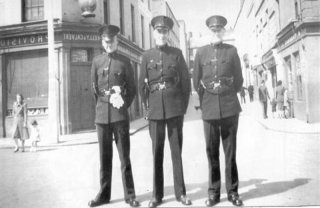There was a great variety of feelings palpable in the attitudes and the demeanour of Newry people in the immediate aftermath of the 1921 Government of Ireland Act : anger dominated – at forcible inclusion in the Six County State, but the people, though largely nationalist, were divided denominationally and politically, and each side was resentful of things from the recent past and suspicious of the other side’s every move. Yet apprehension for the future was the overriding feeling.
Although this was one of the few areas which
There had been curfew which kept the resentful townspeople indoors after dark; one young man had been taken from his lodgings late at night and his cries had been heard by the curfewed people as he was dragged through the deserted streets to a shed on the Armagh Road where, on the following morning, his monstrously-mutilated body was found. There was the attack on Protestant homes in the Altnaveigh area at the foot of the
Eventually peace was restored by force of arms but the air was full of recrimination and distrust. The Boundary Commission was then an unending topic of conversation. If the declared intention of adjusting the border in accordance with ‘the wishes of the inhabitants’ meant anything, there was no doubt Newry would end up ‘in the South’. One of the town’s leading Unionists was so sure of it that he swapped his home for the Warrenpoint house of a Republican businessman.
There was an outcry when only minor tinkering was recommended and Newry remained part of
Indeed one has to wonder, as the Belfast Agreement dissolves through non-enactment, whether Republicans and nationalists have not once more been outmanoeuvred by wily perfidious Albion, as she settles again into an ever-extended period of ‘direct rule’ from England!
Why not pursue this topic on our Discussion Board?
